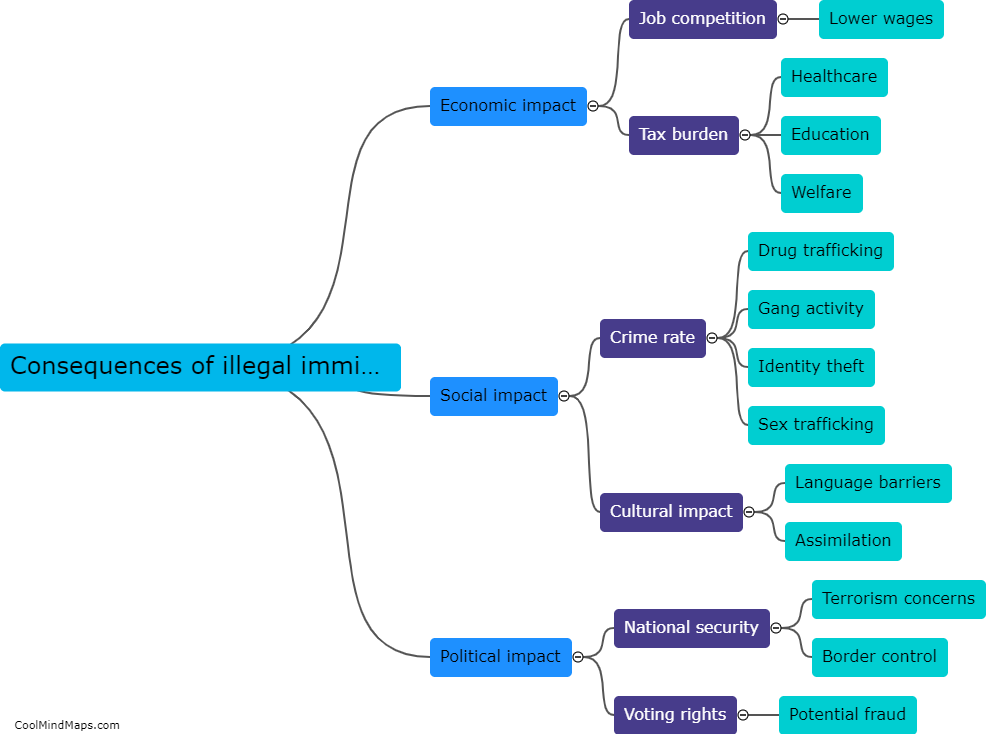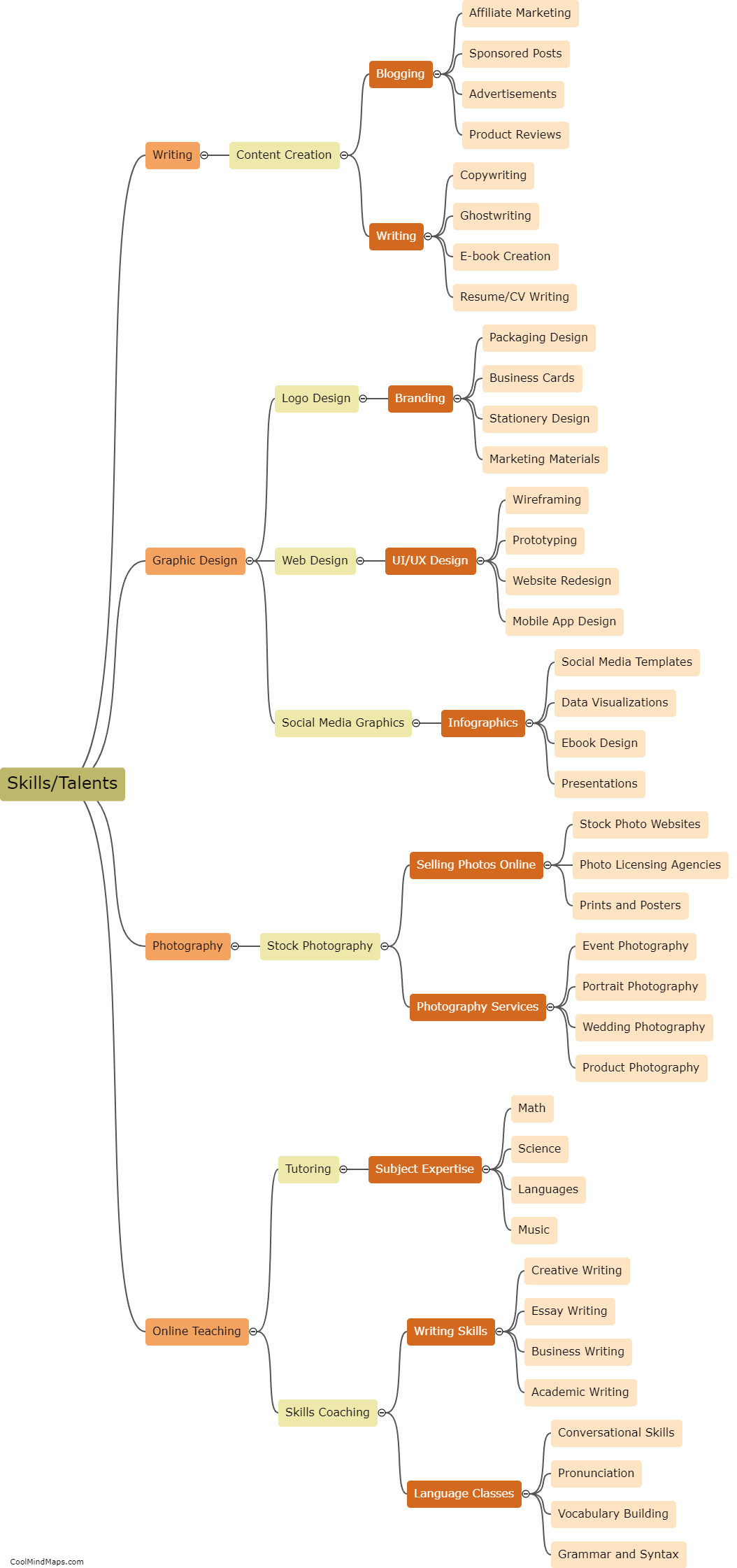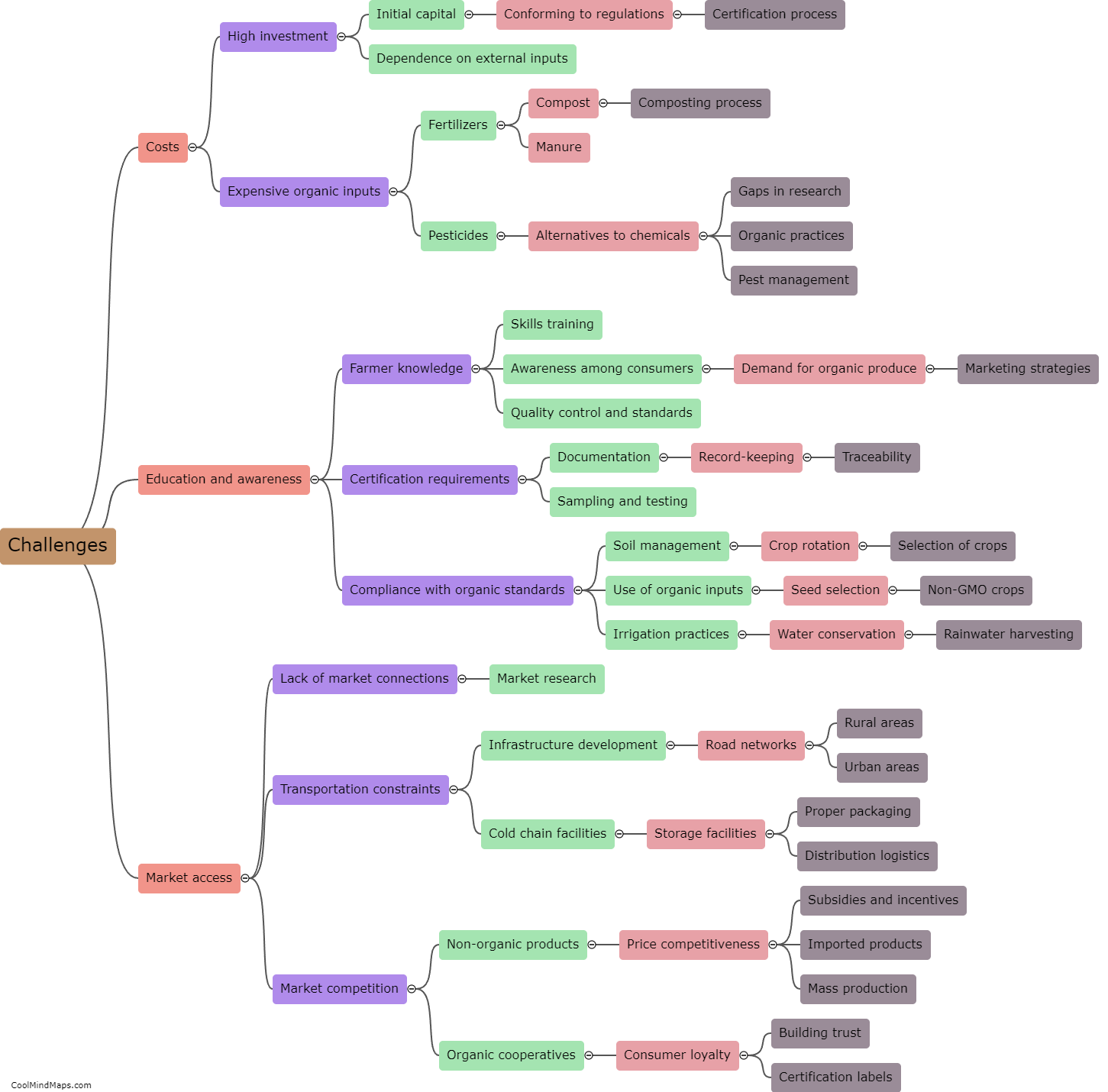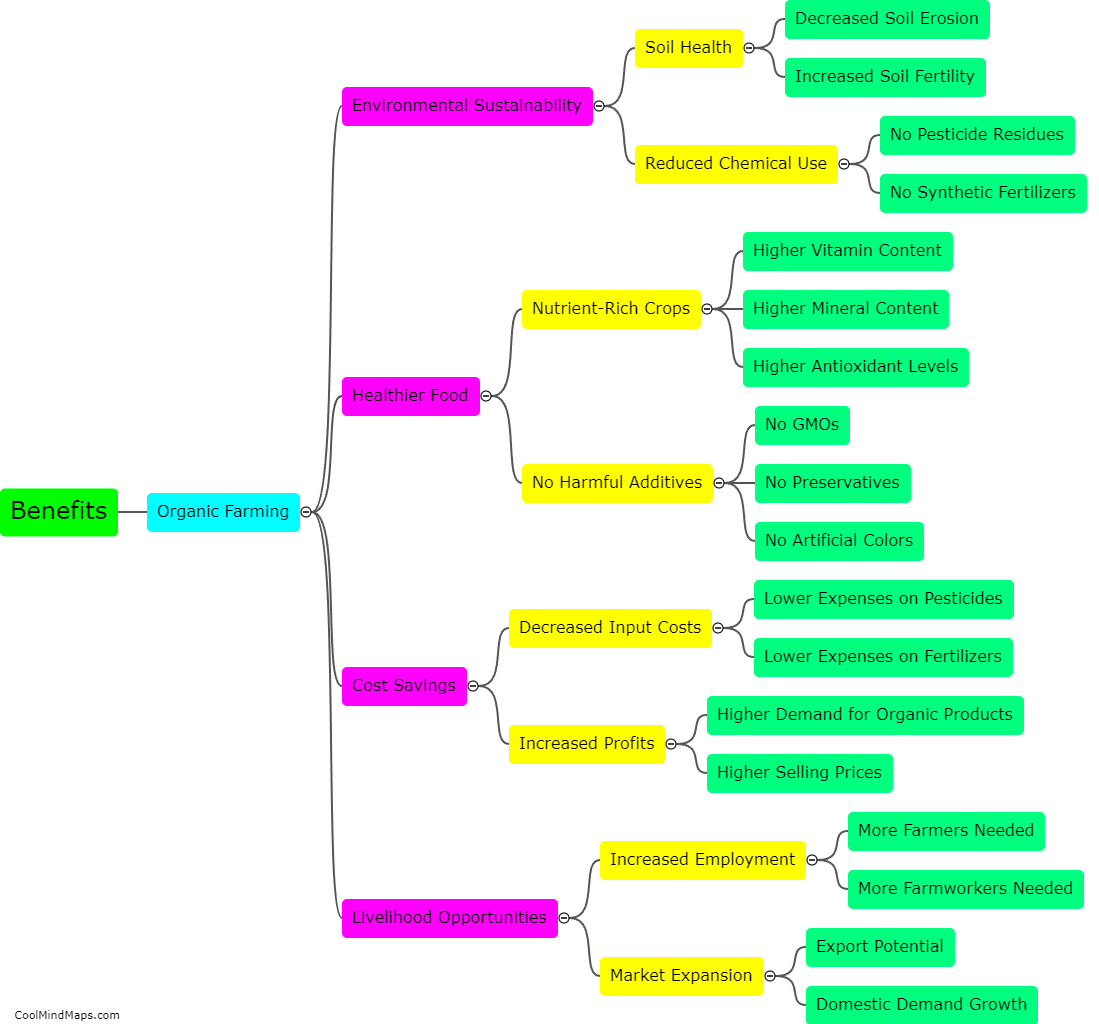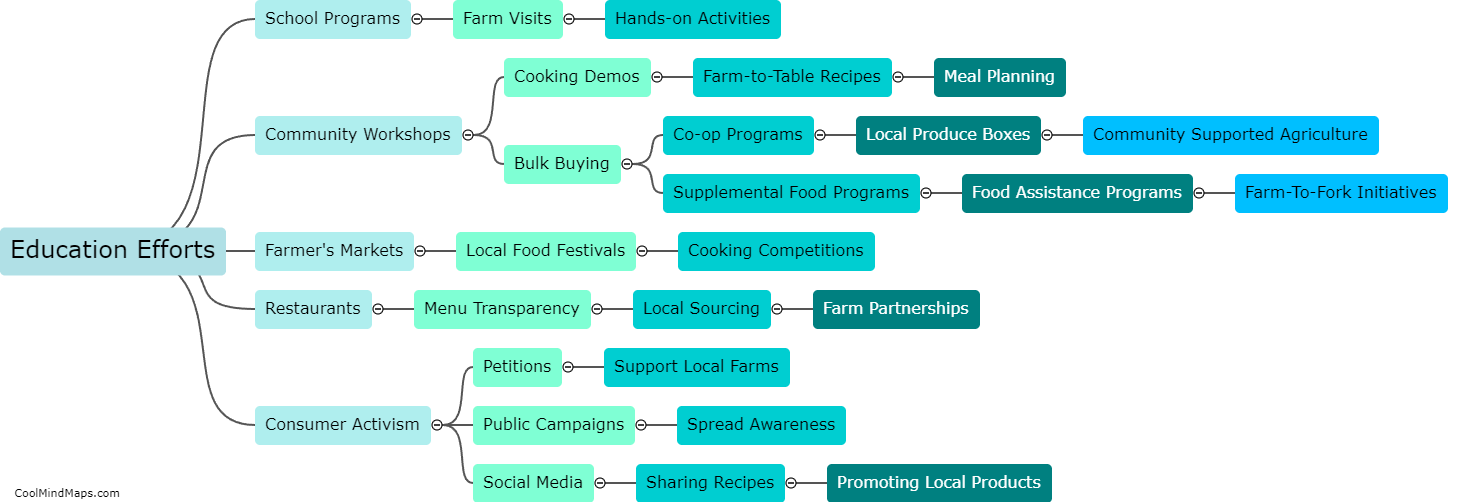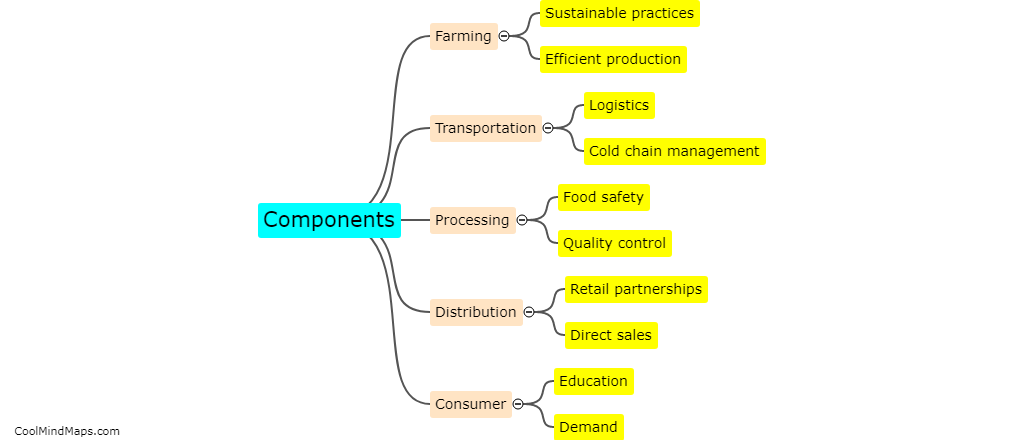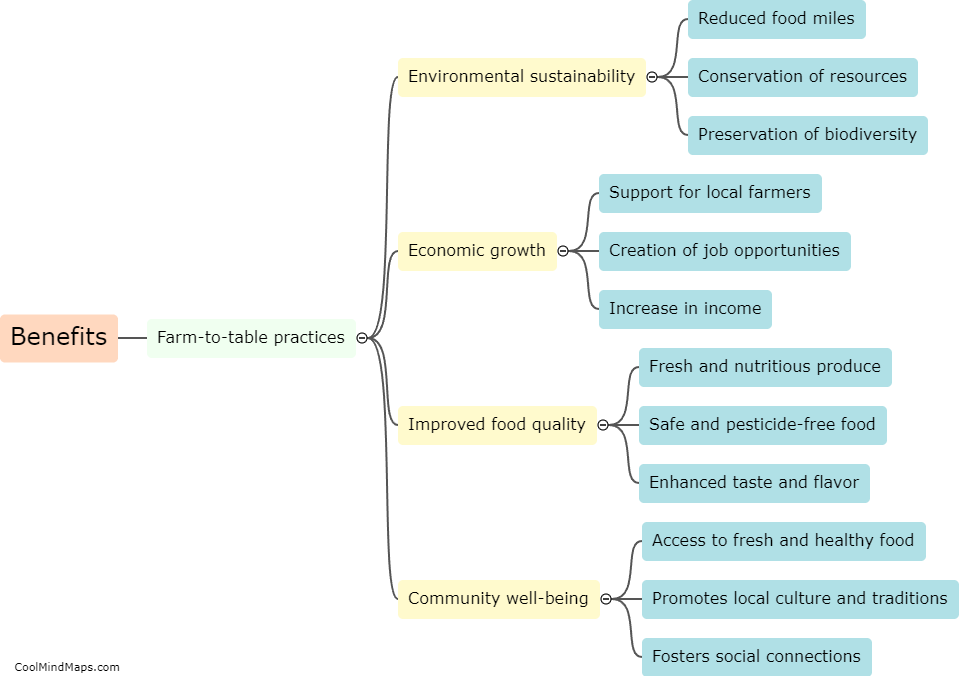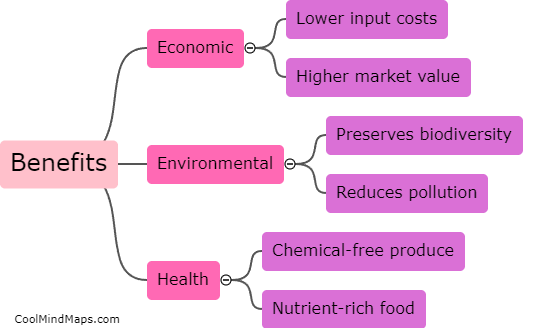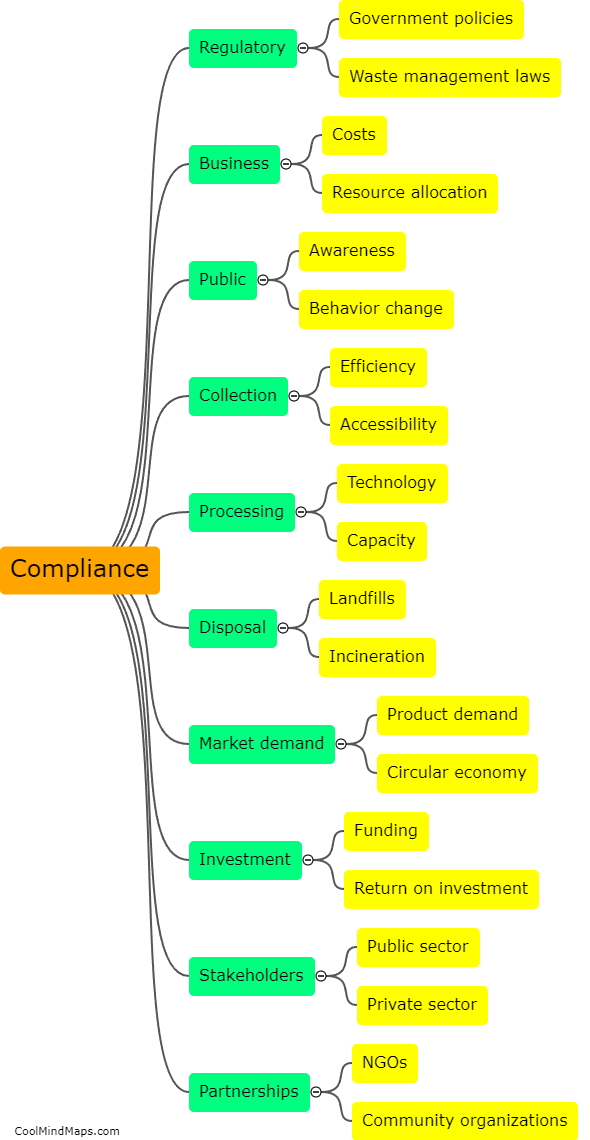What are the benefits of integrating organic farming practices?
Integrating organic farming practices offers a wide range of benefits for both the farmers and the environment. One of the primary advantages is the reduction of chemical inputs, as organic farming strictly avoids the use of synthetic pesticides and fertilizers. This leads to healthier soils and improved water quality as less harmful substances make their way into the ecosystem. Additionally, organic farming promotes biodiversity by creating habitats that support a variety of organisms, including beneficial insects, birds, and microorganisms. Moreover, organic practices help in combating climate change through carbon sequestration in the soil and minimizing greenhouse gas emissions. Overall, integrating organic farming practices ensures sustainable and environmentally-friendly agricultural systems that promote human and ecological health.
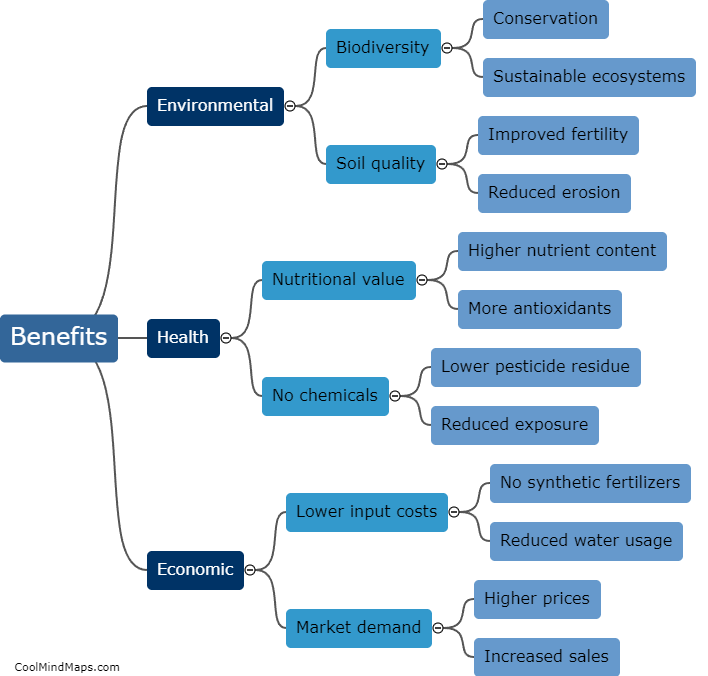
This mind map was published on 2 July 2023 and has been viewed 91 times.


